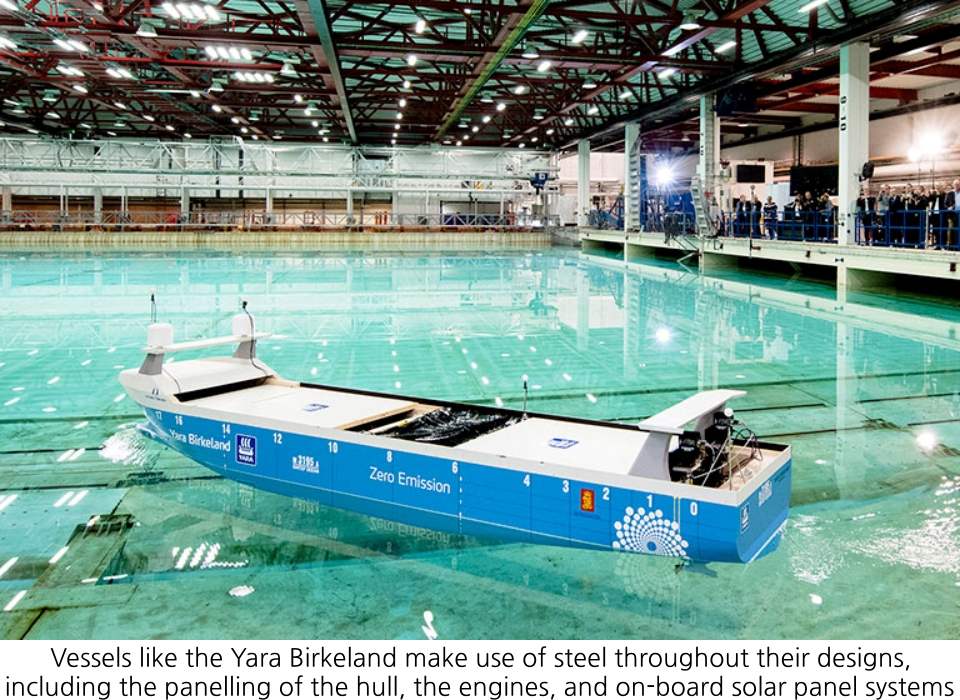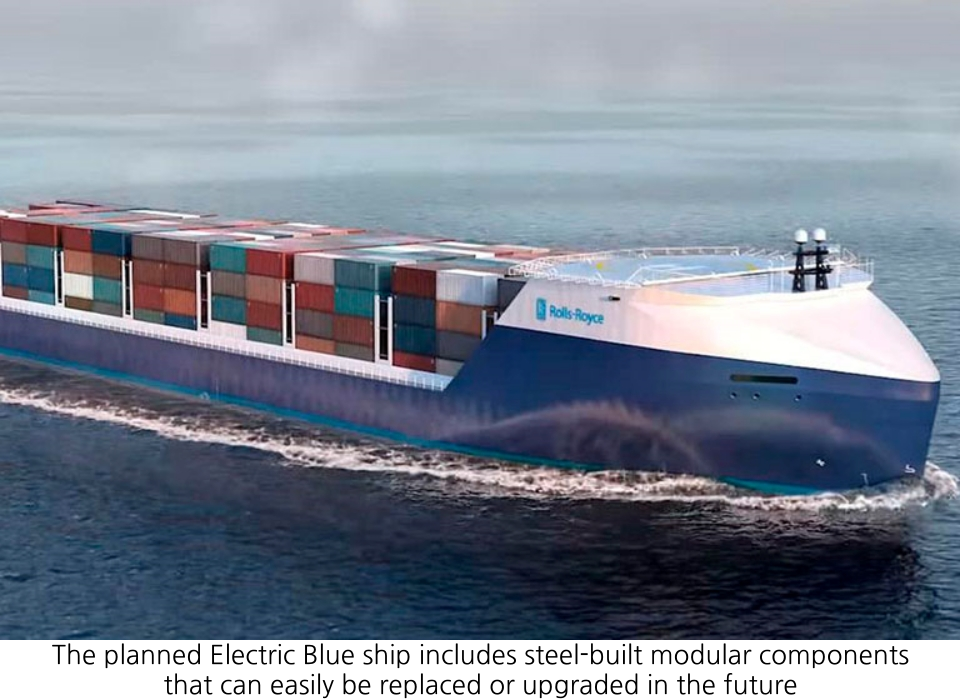Transportation means and vehicle technologies are ever-evolving in our world today. Developments are constant, and changes are inevitable. However, there is one thing that wouldn’t change — Steel.
Steel is strong. It’s solid and durable, which makes it an exquisite material in manufacturing automobiles and other vehicles. The sustainability of steel is another significant factor that shines a light on the future of transportation.
Worldsteel spotlights the maritime sector — among the many types of vehicles — and demonstrates how steel made a difference. See the details of how the combination of steel and latest technology is paving the future of the industry — POSCO Newsroom presents worldsteel, “Artificial Intelligence, Steel and the Future of Shipping.”
Technology is rapidly transforming operations across all industries — from retail to healthcare to real estate — and the implications of these changes are significant. Developments in road vehicle technologies for cars and trucks seem to hit the headlines constantly. But these aren’t the only type of vehicle with an eye on the future.
Welcome to the age of autonomous shipping — made possible by the powerful combination of artificial intelligence and steel. The maritime sector, like so many others, is experiencing unprecedented disruption. Experts are now in agreement that automation is a necessity if the industry is to stay relevant in the decades ahead.

While modernisation always presents challenges, the opportunities on the horizon for the shipping industry are enormous. If shipping companies can successfully implement fresh solutions based on technologies like artificial intelligence, they will be able to streamline and enhance their operations. The result will be valuable benefits such as cost-savings, better routing, and the ability to identify new business areas.
Tomorrow’s ships will be complex hubs filled with sensors and data-capturing devices with significantly enhanced connectivity capabilities thanks to improvements to satellite technologies. When it comes to the design, building and testing of vessels and their components, cloud technologies will also have a big impact.
Perhaps the most important potential outcomes, however, relate to the environmental impact of shipping. Shipping is already the world’s most energy-efficient means of transport, but there is still work to be done in terms of energy efficiency and carbon footprint. Automation technologies are set to have a notable positive impact on sustainability outcomes for the industry.
For example, more efficient shipping routes which use less fuel or alternative energy sources have the potential to minimise or eliminate carbon emissions entirely. At the same time, making improvements to shipping practices and routes can reduce the number of polluting road vehicles needed to transport cargo once it arrives at a destination — another sustainability win for the sector.

l The Future of Shipping
An example of the future of shipping in action is Yara Birkeland, an autonomous, electric and zero-emissions container vessel from Norway, which is expected to launch in 2020. Within its initial two years, Yara Birkeland will move from manned to autonomous operations, marking a world-first for the sector. The ship will directly replace around 40,000 truck journeys per year, reducing NOx and CO2 emissions significantly.
In the Yara Birkeland project and others like it, steel has an important part to play, acting as a key enabler for strides forward in shipping automation and other future-facing technologies. Vessels like the Yara Birkeland make use of steel throughout their designs, including the panelling of the hull, the engines, and on-board solar panel systems.
As autonomous shipping takes off, more and more companies are entering the race and hoping to get in on the action. For example, a “future-proof” ship concept called Electric Blue was revealed by leading brand Rolls-Royce in 2017. It includes steel-built modular components that can easily be replaced or upgraded as necessary in the future, as well as featuring a clean design focused on low building and maintenance costs.
The future of shipping is fast approaching, and it will only continue to gain pace throughout 2020 and beyond. As the technologies powering the world’s most important industries change, steel remains at the heart of helping to create greater business efficiencies, positive sustainability outcomes, and sophisticated, cutting-edge design.
Images: Yara; Rolls Royce Marine, Flickr
The original content published on the worldsteel’s ‘Our Stories’ section is available at: https://stories.worldsteel.org/innovation/artificial-intelligence-steel-and-the-future-of-shipping/
